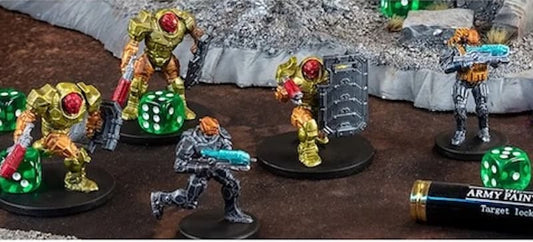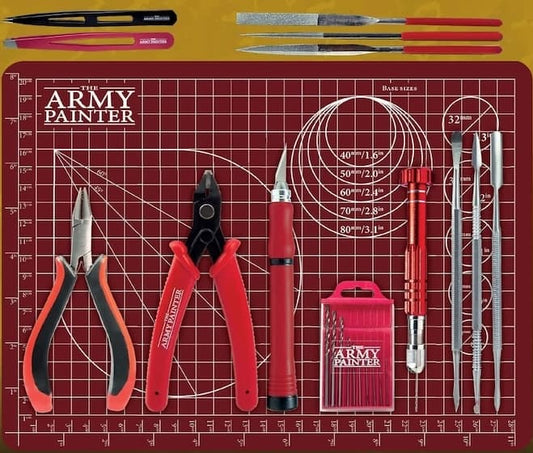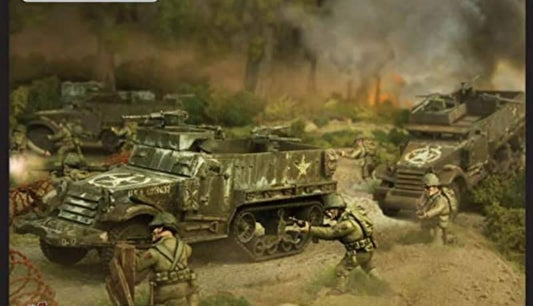Would you like to know the benefits (and drawbacks) from each edition of D&D, so you can figure out which edition you should play?
This list explains our personal favorite editions from the hit tabletop RPG game Dungeons and Dragons.
And…
If you don’t agree, we show the key selling points for each edition so you can find a D&D system that’s perfect for you and your group.

Now that you know our favorites, here are the killer factors that make each edition of D&D unique.
D&D Basic / OD&D (1974 ~ 1983)
D&D basic, or Original D&D (OD&D) is a hodgepodge collection of notes, scribbles, and settings which eventually gave birth to AD&D and later the modern editions of Dungeons and Dragons.
The key features are:
-
Similar to wargames, especially in combat.
-
Similar game to AD&D 1e
-
Weapons all do the same damage.
-
There are only 3 classes to play.
-
Lacks any customization that AD&D and later editions began to introduce, especially race & class splits and emphasis on how characters are different through ability scores.
Most of the community would agree that D&D Basic did produce something great, being Greyhawk.
Many older players will already know most of the rules, and be ready to go in a matter of minutes.
However, the benefits end there, as the edition was designed for a very specific type of wargamer, role-player mix, and the first of a generation of games.
D&D basic is like the prototype of Dungeons & Dragons. And while the prototype is unique, it is not generally applicable to a wide audience, since it was designed for a very specific player and purpose.
AD&D 1st Edition (1977)
It's challenging to call AD&D first edition the first real edition of Dungeons and Dragons because OD&D and AD&D 1e are quite similar.
However, if you were to play an older edition, AD&D 1e has more customization options, a few more tactical additions, and standardizes the rules for Dungeons & Dragons, which before, had to be house ruled quite commonly as there were major gaps in the system.
There is more player choice than its predecessor, and focuses heavily on Player skill.
If a player isn’t skilled at overcoming a trap or obstacle, then the character would not be able to succeed.
If a player couldn’t use diplomacy, then the character would fail at their attempted task.
The mechanical focus on player skill is throughout the whole system, encouraging players to be like their characters and live in a gritty, fantasy world.
The key features are:
-
Player skill - Not character skill
-
Introduction of many main-stay mechanics of D&D
-
Organized collection of previous rules & notes into a single umbrella
-
Standardized how D&D was played
-
Race & class combinations
-
Slightly greater emphasis on abilities
-
Weapons are unique, and combat is slow
But with increased rules came increased complexity which wasn’t streamlined well. Understand the system as a new player will be complicated, and combat will be grindingly slow.
The combat is also very brutal, for and against. Similar to real life, a single unskilled sword swipe could end nearly anyone’s life.
Magic is funky in this edition, and characters are likely to be similar, if not identical.
Some players will prefer this edition over having to learn a newer edition of Dungeons and Dragons.
AD&D 2nd Edition (1989)
Ahhh… AD&D 2nd Edition.
The brainchild from older editions of Dungeons and Dragons.
The key features are:
-
Character customization is greatly expanded.
-
Features a new skill and non-combat proficiency system
-
Combat is tactical, slightly slow, analytical, and a “thinking man's” style of game, but also complex and hard to understand
-
Strong “background” roleplaying ties
-
Commonly most nostalgic
-
Emphasis on Dragonlance settings & rules
AD&D 2e is a very analytical game, where players constantly measure the risks and rewards of every tactical choice they make. Weapons are critically important, and there’s like 28 pages on them, with a variety of rules that are hard to understand.
The game is tinker-y, encouraging players to master lots of small mechanics.
Beyond combat, AD&D 2e places the highest level of emphasis on roleplaying that the “old” editions of Dungeons and Dragons have, with non-combat proficiencies and a new skill system letting players diversify and explore a wider range of characters in fantasy (and even less fantastical) settings.
D&D 2e is the highest level of in-combat tactical mastery and retains a heavy air of nostalgia, sure to hit old players even if the mechanics seem a bit “rusted”.
D&D 3rd Edition (2000)
The first of the “new” editions of Dungeons and Dragons miniatures.
D&D 3rd edition loses the Advanced part of its name and gives birth to many new mechanics and a completely different style of play from predecessors.
Combat was reinvented, closer to a challenging, unique RPG board game rather than a war game.
And with all the choices behind handed to the players, they could make any character they could think of. Add in the extensive third-party market spawned by the OGL (Open Gaming License)
Combat is a bit faster and more streamlined, while adding a host of tactical options both before combat (during character customization) and in-combat.
Oh, and magic & spell casting is pretty awesome, and rewards smart players.
The key features are:
-
Heavy focus on character skills & powers… like the introduction of feats
-
Moderate focus on multi classing
-
Dense and varied customization system - From classes to skills, strengths, weaknesses, specializations, and out-of-combat talents
-
Can “stack” abilities, talents, and even classes with each other for unique and varied combats
-
Vigorous third-party market
-
Characters could be made more powerful than the others
-
Awesome spell casting system
-
A “true” D20 skill system where a character is trying to overcome obstacles by reaching a certain “number” on a D20 for success, with their skills adding to their chances. More challenging obstacles require higher rolls and character skill to overcome
However…
Combat with more options does slow it down a little.
It’s not the fastest game on the list (that would be 5th edition or 4th edition), nor the slowest (1st).
The rules will cover a lot and will control the flow of the game.
You’ll be expected to know a vast majority of them if you’re expecting to contribute in a fight.
D&D 3.5 Edition (2003)
Most of the community agrees that D&D 3.5 is better than 3.0, but nearly identical.
Small streamlined updates, clearer rules, better organization, throwing bad rules away and reintroducing better ones.
The key features are:
-
Takes almost everything from 3.0 and makes it better
-
Is 90% compatible with 3.0 books & rules
-
Magnified the role of feats, prestige classes, multi-classing, and character customization
-
Baseline for many modern D20 roleplaying games, like Paizo’s Pathfinder.
Not much bad to say about 3.5, except the same bad things about 3.0 & Pathfinder.
Although the addition of new rules and some rules that don’t mesh with 3.0 may irritate players, as you’ll have to read the whole book again just to find the small changes that are 100% completely incompatible…
Even if 90% of the system IS compatible, there will be elements you’ll need to relearn.
D&D 4th Edition (2008)
D&D 4th Edition is the most controversial game.
Some love it.
Some hate it.
Others will say 4e not Dungeons and Dragons but don’t hate (or love) the system.
4e D&D is a completely new kind of game, similar to a customizable board game with heavy RPG elements.
The key features are:
-
Extensive Lore
-
Streamlined character customization
-
Combat 100% an RPG board game
-
High level combat is the least complicated of 3.0 editions and up, but still rewarding and tactical
-
D&D boards, Battle-grid, and D&D miniatures are essential.
Strangely enough, 4e encourages more cooperation than other editions, with each option given to players streamlined and simple to understand (and combine) with other characters for effective combat potential.
You don’t need to know all the rules to play well, and combat will last for a while (giving players opportunity to make multiple kinds of actions called “powers” - some standard, like basic attack powers, and others special, like Daily “Super Strike of the Gods”.
Referring to your characters as high-fantasy or even Superhero-like may not be an inaccurate comparison.
Which many role-players (especially role-players who like gritty fantasy) will greatly dislike. Even more so if those players don’t like board games.
While heavy roleplaying groups are often drawn to other systems, D&D 4e can still have an enjoyable Roleplaying element, depending on the group.
D&D 5th Edition (2014 - Present)
Dungeons and Dragons 5e Edition is the current game system from Dungeons and Dragons, and is the de facto system because it’s the newest.
Board game top charts say 5e is the most well liked - among all RPG games.
D&D 5e is the easiest game on the list to play and players will learn quickly and easily. It has many unique rules, but doesn’t strangle players by leaving interpretation and style in the hands of its players.
D&D 5e is a combination of all other editions, with its own unique strengths and the pitfalls that accompany being “like” the other editions of D&D.
The key features are:
-
Current edition of D&D
-
Flexible
-
Bonded accuracy
-
Retains “elements” of old editions like backgrounds from 2e, multi-classing, feats, and high levels of tactical combat from 3e.
-
Fastest, simplest to understand combat
-
Big emphasis on the six ability scores
-
“Feel” rather than “legalism”
-
Slightly nostalgic from how “similar” it “feels” to older editions of Dungeons and Dragons… while being 1578x more streamlined and with its own unique everything.
Bonded accuracy is unique to 5e of D&D, which essentially means that as your character progresses, they will successfully achieve more and more of the activities requiring die rolls.
Challenges do not increase over time. A character will only get better at their abilities, talents, and skills, which puts characters in the spotlight more often.
Which doubly enhanced the focus on the 6 ability scores.
Each character is fundamentally strong (or weak) at different parts of the game. This allows characters to cover for each other, and support where their parties are weak, ensuring each character shines in their own unique way.
Combat retains its tactical feel, although some hardcore power gamers will complain that martial classes aren’t good for anything except being the best damage dealers. This isn’t entirely fair, but their complaints are valid.
D&D 5e supports an older “D&D feel” without the legalism of modern RPG games, but does so without the complexity or lack of character customization earlier editions were designed on. Combined with its modern rules, balanced design, and crisp lack of bloat make the game a very solid choice, even if its mechanics aren’t your #1 favorite.
D&D 5e, with all its combined strengths, is great for the widest audience of Roleplayers.

Each game of D&D is different - and so is each edition.
We would recommend new players to play D&D 5e for its versatility and new rules which makes playing fast, easy, and fun without sacrificing quality or tactical combat.
D&D 5e is even a great tabletop game for kids, especially through dungeons and dragons painting on unpainted miniatures…
Which will be fun! But very different than with your standard group of friends.
Need custom D&D miniatures for your upcoming D&D game? Nolzur’s marvelous miniatures & Nolzur’s marvelous pigments are awesome miniature paint sets.
Any edition will be a blast to play for the right group.
Just make sure to find an edition that suits the personality of your group. Let us know your favorite tabletop games edition of Dungeons & Dragons!

Written by: Gilean Benton



